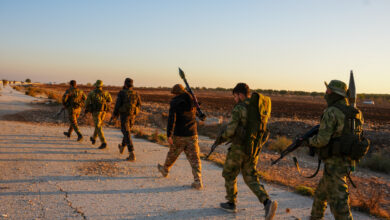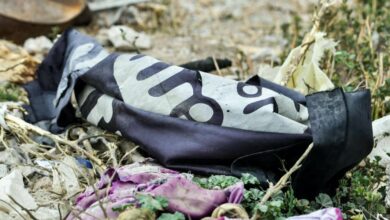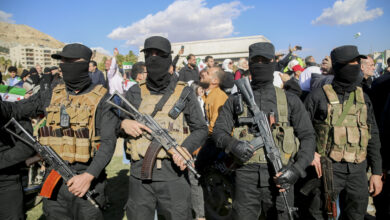Syria Blast Kills Six Ahead of Ashura: Ministry
A bomb killed six people and wounded scores on Thursday when it exploded near the Sayeda Zeinab mausoleum in Damascus, Syria’s most visited Shiite pilgrimage site, the authorities said.
The deadly blast south of the capital came ahead of the annual commemoration of Ashura, when Shiites remember the death of the Imam Hussein, grandson of the Prophet Mohammed, in a seventh century battle.
The interior ministry gave a death toll of six, state news agency SANA reported, revising an earlier death toll of five.
More than 20 people were wounded in the attack which the interior ministry said was caused when a motorcycle exploded near a taxi, calling it a “terrorist bombing.”
Health Minister Hassan al-Ghobash visited the wounded in hospital, the ministry said.
A source at the nearby Al-Sadr hospital told AFP earlier that the facility had received 10 wounded after a car bombing near the shrine.
State television reported that the explosion was caused by a “bomb placed in a taxi by unidentified people.”
“We heard a huge blast and people began to run,” 39-year-old civil servant Ibrahim told AFP.
“Then ambulances arrived and security forces cordoned off the area.”
He said the explosion took place “near a security building around 600 metres (yards) from the mausoleum of Sayeda Zeinab,” granddaughter of the Prophet Mohammed and the daughter of Imam Ali, a founding figure of Shiite Islam.
The authorities had tightened security measures around the mausoleum for the 10-day Ashura commemoration, the most important in Shiite Islam.
On Tuesday, an explosion in a car in the same area wounded two civilians, official media cited a security official as saying.
Frequent Targets
Shiite shrines are a frequent target of attacks by Sunni Muslim extremists of the Islamic State group (IS), not only in Syria but also in neighboring Iraq.
There has been no claim of responsibility for Thursday’s Damascus attack.
The Sayeda Zeinab mausoleum was hit by several deadly bombings during the country’s civil war that erupted in 2011.
Since then, the mosque complex with its turquoise ceramics and gold dome in the Iranian style has been defended by Shiite militiamen, mostly Lebanese and Iraqi, as well as by the army.
Attacks have nonetheless declined in recent years, with some of the security measures relaxed.
IS said it was behind a double suicide attack in February 2016, 400 meters from the mausoleum, that killed 134 people, including more than 90 civilians.
The group had also claimed a triple blast near the sanctuary several weeks earlier that took the lives of at least 70 people.
The war in Syria has claimed more than half a million lives and displaced millions.
It began with the brutal repression of protesters demonstrating against the regime of President Bashar al-Assad.
Later it evolved into a complex conflict involving jihadists and foreign powers.
Ashura, on the 10th day of the Islamic month of Muharram, commemorates the killing of Imam Hussein at the battle of Karbala in modern-day Iraq.
Shiite Muslims the world over view Hussein’s death as a symbol of the struggle against injustice.












